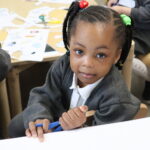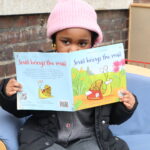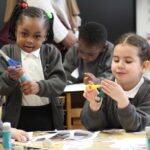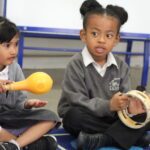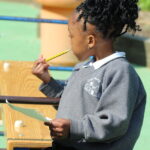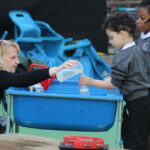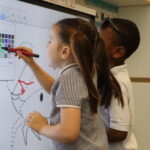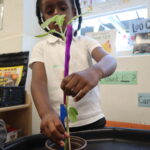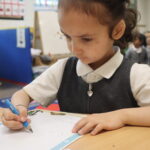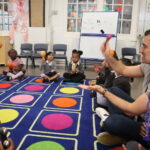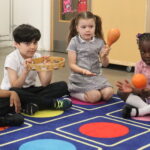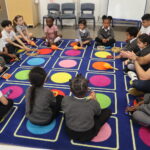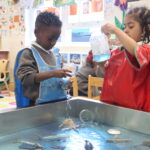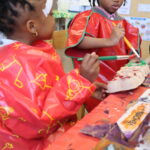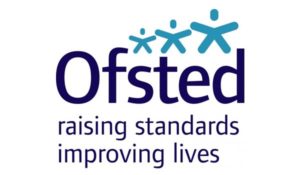Physical Development
Physical Development involves providing opportunities for young children to be active and interactive; and to develop their co-ordination, control, and movement. Children must also be helped to understand the importance of physical activity and to make healthy choices in relation to food.
At Grange Primary School, we provide opportunities for children to develop their co-ordination, manipulation and movement. They develop the knowledge of the importance of being physically active and eating healthily. To give children the best opportunities at forming positive relationships, children are supported in their understanding of exercise, sleep and eating a healthy, balanced diet to promote a healthy lifestyle. Our environment, both indoors and outdoors encourages physical and energetic play. We know that by children having regular access to basic cross lateral movement (creeping, crawling, clambering, running, walking, and pedalling) enhances children’s development, helping their hands, arms, legs, feet, and eyes all work together. The children at Grange Primary School have regular access to these basic movements, in order to develop stronger connections between the two sides of the brain. This promotes a stronger capacity for more complex sensory processing, enabling children to become more proficient at sequencing thoughts and words which in turn supports co-ordination and the sequencing of speech, communication and early writing. This then supports children’s ability to track and read print in books and within the environment.
Our snack table promotes the importance of making healthy food choices with the opportunity for children to try new foods and a range of textures. Children within our provision are given the skills to manage their own basic hygiene and personal needs including dressing and toileting. They also discuss and practise oral hygiene regularly.


